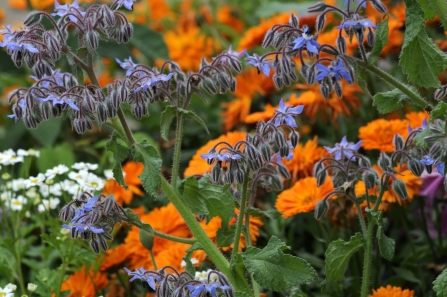The new campaign draws inspiration from a dazzling new film adaptation of the Frances Hodgson Burnett classic, The Secret Garden, starring Colin Firth, Julie Walters and newcomer Dixie Egerickx as Mary Lennox. The film will be bringing the magic of wildlife, childhood and gardening to the big screen this Spring when it blooms in cinemas across the UK from Good Friday, 10th April 2020.
Butterflies and moths are important pollinators and, along with caterpillars, are vital food for birds like robins and blue tits as well as bats. However, their habitats have faced catastrophic declines and once-common species like the small tortoiseshell have dropped by up to 80% in the last 30 years in some areas.
An ideal butterfly garden has a wide variety of flowers throughout the year to support their life cycles – for butterflies and moths emerging from hibernation, egg laying females, caterpillars and then adults. Early flowering species include dandelions, aubretia and native bluebells which could be followed by buddleia and red valerian, wildflowers and long grass. Ivy flowers late into autumn. Even a small flowerbed or flowering window box could throw declining numbers a lifeline, especially in urban areas.
The Wildlife Trusts’ gardening champion, horticulturist and TV presenter Frances Tophill says:
“Our garden flowers and plants provide a rich source of rejuvenating nectar for these much-loved garden visitors as they emerge from hibernation to herald the start of spring. Go wild in your garden and leave the dandelions and daisies in the lawn to provide a meal, aim for year-round flowers and include a wildflower area for egg-laying females as well as gardeners’ favourites like lavender, nasturtium and verbena. The Wild About Gardens website is packed with information and easy actions we can all take to support butterflies and moths throughout their impressive life cycle.”
Helen Stace, Chief Executive of Herefordshire Wildlife Trust says:
“We work across Herefordshire to help restore, create and care for wildflower meadows where butterflies can thrive but creating habitat for butterflies and other pollinators is something we can all do at home as well. Butterflies are a wonderful way to introduce children to wildlife too. Planting a border or pot with flowers then recording what species you see is an engaging activity for all ages and incredibly rewarding.”
Helen Bostock, Senior Horticultural Advisor at the RHS says:
“Many moth and butterfly species are helpful pollinators and an important part of a balanced, healthy garden. With many of their natural habitats under threat, consider rewilding an area of the garden to provide food and shelter for these fascinating insects or sacrificing a patch of plants – for example, a window box bursting with nasturtiums will help attract large white butterflies away from your cabbage crop.”
Pledge for butterflies
Every butterfly garden counts. We want to know about every new wild area, box or border that’s being grown for butterflies. Each garden contributes towards the network of green spaces that nature needs to survive. Please pledge a bit of garden for butterflies and put it on the map here www.wildaboutgardens.org.uk.
Download or pick up a booklet
The Wildlife Trusts and RHS have published a beautiful – free – booklet with colourful advice and easy tips designed to make our outdoor spaces more attractive to butterflies, moths and their caterpillars. Available here: https://wtru.st/butterfly and from Herefordshire Wildlife Trust’s shops at Queenswood Country Park and in Ledbury.
Find the full range of wildlife gardening booklets, advice and inspiration here www.wildlifetrusts.org/gardening

